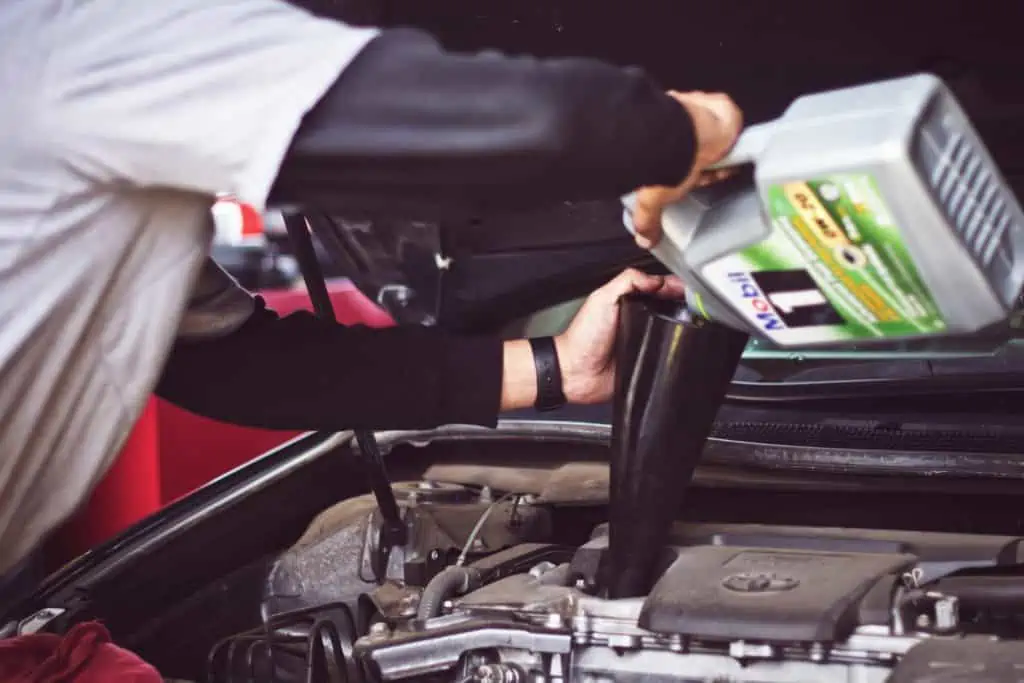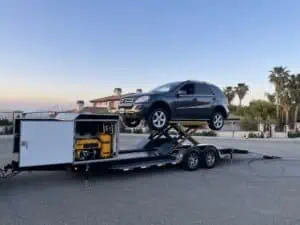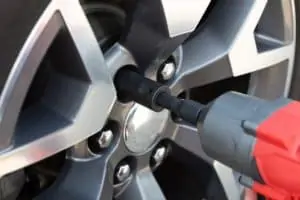The US auto parts, and accessories business is a $365B per year business. With a market that large, the number and diversity of repair parts can be a lot. This article shares some insider tips to help you find the right parts for your car.
1- What are the Different Categories of auto parts?
Knowing a bit about the different part categories can help you find the right parts for your needs. When reading a repair estimate, you will see several different categories of parts. Being aware of these categories offers a good filter for understanding parts quality.
- OEM Parts – Parts branded and sold by the automaker (Original Equipment Manufacturer) who made your vehicle. OE parts are generally considered the highest quality replacement option.
- Aftermarket Car Parts – Consumer auto parts backward engineered and branded by a reputable company other than the automaker. Some examples include Bendix, FRAM and Robert Bosch.
- Supplier Brand Parts – Aftermarket parts manufactured by the supplier who made the OE part.
- Remanufactured Auto Parts – Remanufacturers take a used casing and install all-new components. These are often a less expensive and high-quality alternative to a new aftermarket part.
- Rebuilt Parts – Rebuilders take a used part and replace only the broken pieces. These are generally a lesser quality than a Remanufactured part
- Salvage Auto Parts – Parts that are removed from a used/totaled vehicle. Salvage yards can be a good way of finding parts that are out of production or an economical way to replace an obscure body part.
2- When do OEM parts matter?
OEM parts are generally considered the highest quality replacement parts in the marketplace. So, you should use OEM parts if you have a newer car or want to maintain factory quality on your vehicle. Also, OEM parts matter during the warranty period.
There are laws in the United States that protect the consumer’s right to choose their parts. But, automakers have no obligation to honor the warranty for aftermarket parts or parts that are damaged by an aftermarket component. So, there are advantages to using OE parts if your vehicle is under warranty.
3- What is in the brand?
There are a lot of different categories of parts, from very high-quality name brands to very inexpensive generic parts. In general, if reliable replacement aftermarket auto parts matter, you should look for name brand components. However, cheap auto parts may be right for you if you are keeping an older car on the road.
4- Does the Store Matter?
The part store you’re buying from can be a good predictor parts quality. Distributors carry the parts they can sell. So, in general, consumer facing outlets generally carry consumer grade product and wholesale focused outlets usually carry high quality parts demanded by auto repair shops.
So, if you want the same quality parts an auto repair shop would use when repairing your vehicle, go to a wholesale parts outlet. And if you want recognizable name brands and DIY focused components go to a retail replacement auto parts store. Both are great choices depending upon your needs and budget.
There are also great online stores for both DIY and wholesale quality parts at discount prices. Companies such as Rock Auto offer high quality parts that are drop shipped directly to your house. And a Google search will usually find car dealers offering parts with a significant discount off retail prices.
5- Where Should I buy my parts?
If you need parts right away or you don’t know what you need, go to a retail outlet near you. However, if you have time and confidence in what you are purchasing, buy your auto parts online. Physical retail stores are more convenient. But that convenience comes with higher markups.
Since selling online is more competitive, pricing tends to be cheaper even with shipping costs included. And eBay is a great place to find obscure automotive parts for older vehicles.
6- What are Performance Parts?
Repair parts are to keep your vehicle running as it was originally designed. Performance parts are to make your car go faster. Many performance parts need to be installed in groups, so do your research before customizing your vehicle or you could do more harm than good.
And if you need specific advice, ask a shop owner or friend who’s a motorhead. Customizers can give you good advice on what to do and not to do. And shop online. Performance parts generally have a higher markup than stock replacement parts. So, there are great online deals.
7- Do I always need top quality Parts?
The need for top quality parts depends on your interests and your vehicle. If you have a brand-new car and you want to keep it running well, top quality parts probably make sense. However, if the car is 30 years old and just needs to be held together a little longer, the lowest cost parts probably make sense.
For me, it comes down to cost of the parts versus the value of the vehicle. So, if I have a $2,000 car for one of my college aged kids, I’m going to put in cheap parts. For my new cars I install only OE parts. And, for my 10-year-old average mileage car, I compare OE and name brand aftermarket parts and use the parts that offer the best value.
8- How Can I Avoid Paying Too Much?
The key is to shop around. Check prices at several parts stores or check online for pricing. If you are taking your vehicle to a shop for repairs, ask for different part quality options.
And if you think you’re being overcharged, ask to see their parts invoice BEFORE they repair your car. Shops will generally seek a 50% gross profit on the parts, so you should see around a 100% markup off shop cost.
Also, you are less likely to be pay extra for large components than clips and fasteners. If every part on your invoice ends in .99, then parts are being marked up to the nearest dollar. So, for example, you could be paying 99 cents for a 15-cent clip. This can add up if your repair requires 20 clips or fasteners.
9- What’s in a parts warranty?
An excellent warranty can matter a lot. Most OE parts offer 12- 36-month warranties, while many aftermarket suppliers offer limited warranties. So, read the limitations to make sure the warranty is right for you. In particular, look for transferability and coverage limitations.
Related Questions
What are shop parts profit margins?
The automotive parts markup industry average is around 100%. So, most shops earn a 50% profit margin. But don’t worry, they are buying parts at discounted prices from distributors, so your price should be similar to the price you would pay for the part at retail pricing.
How can I find an auto repair shop near me?
The best method for finding a good repair shop is to search online reviews and certifications. Certification groups such as the I-CAR and ASE and ASA will list certified and member shops. And groups such as Angi.com and Google will offer customer reviews and ratings.
What are delivery times for online part purchases?
How long it takes parts to arrive depends on how close you are to the parts warehouse. Companies such as NAPA that have a large network of stores should be able to deliver parts same-day or next day.
On the other hand, parts ordered from a company with a single location may use auto parts dropshipping and could take longer. In general, you should expect to wait longer for performance parts, unique applications or parts ordered from an online dealership.
Is it better to buy car parts online or at a local parts store?
This depends upon 2 factors. Are you very confident that you are buying the right part? And how soon do you need the parts?
If you need parts fast or require expert advice on which parts to purchase, go to a local auto parts store. However, if you are confident on which parts you need and can wait for the parts to arrive, purchase your parts online.
Why are parts so much cheaper online?
Parts are cheaper online because the online marketplace is more competitive. It’s much easier for a consumer to shop 5 online stores than 5 physical auto parts stores. So online sellers need to have better prices to earn customer business.
About the Author
Karl Krug has been in the automotive industry for over 25 years. During his time in the industry, Karl has managed multiple product lines for automakers and aftermarket manufacturers. In his time in the industry, Karl has formed a unique insider perspective on the automotive parts and repair industries. Did you find this article helpful or want to hear more? Send us your comments.






